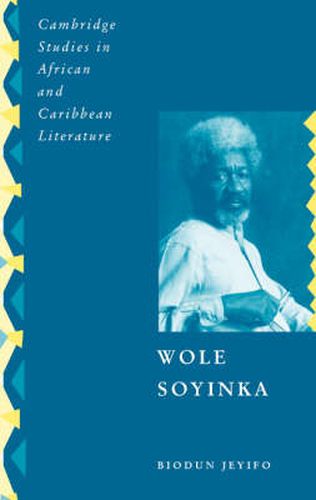Readings Newsletter
Become a Readings Member to make your shopping experience even easier.
Sign in or sign up for free!
You’re not far away from qualifying for FREE standard shipping within Australia
You’ve qualified for FREE standard shipping within Australia
The cart is loading…






Biodun Jeyifo examines the connections between the innovative and influential writings of Wole Soyinka and his radical political activism. Jeyifo carries out detailed analyses of Soyinka’s most ambitious works, relating them to the controversies generated by Soyinka’s use of literature and theatre for radical political purposes. He gives a fascinating account of the profound but paradoxical affinities and misgivings Soyinka has felt about the significance of the avant-garde movements of the twentieth century. Jeyifo also explores Soyinka’s works with regard to the impact on his artistic sensibilities of the pervasiveness of representational ambiguity and linguistic exuberance in Yoruba culture. The analyses and evaluations of this study are presented in the context of Soyinka’s sustained engagement with the violence of collective experience in post-independence, postcolonial Africa and the developing world. No existing study of Soyinka’s works and career has attempted such a systematic investigation of their complex relationship to politics.
$9.00 standard shipping within Australia
FREE standard shipping within Australia for orders over $100.00
Express & International shipping calculated at checkout
Biodun Jeyifo examines the connections between the innovative and influential writings of Wole Soyinka and his radical political activism. Jeyifo carries out detailed analyses of Soyinka’s most ambitious works, relating them to the controversies generated by Soyinka’s use of literature and theatre for radical political purposes. He gives a fascinating account of the profound but paradoxical affinities and misgivings Soyinka has felt about the significance of the avant-garde movements of the twentieth century. Jeyifo also explores Soyinka’s works with regard to the impact on his artistic sensibilities of the pervasiveness of representational ambiguity and linguistic exuberance in Yoruba culture. The analyses and evaluations of this study are presented in the context of Soyinka’s sustained engagement with the violence of collective experience in post-independence, postcolonial Africa and the developing world. No existing study of Soyinka’s works and career has attempted such a systematic investigation of their complex relationship to politics.